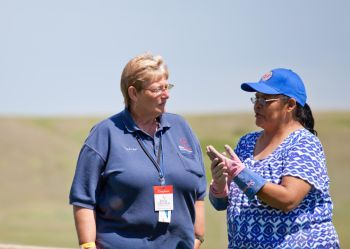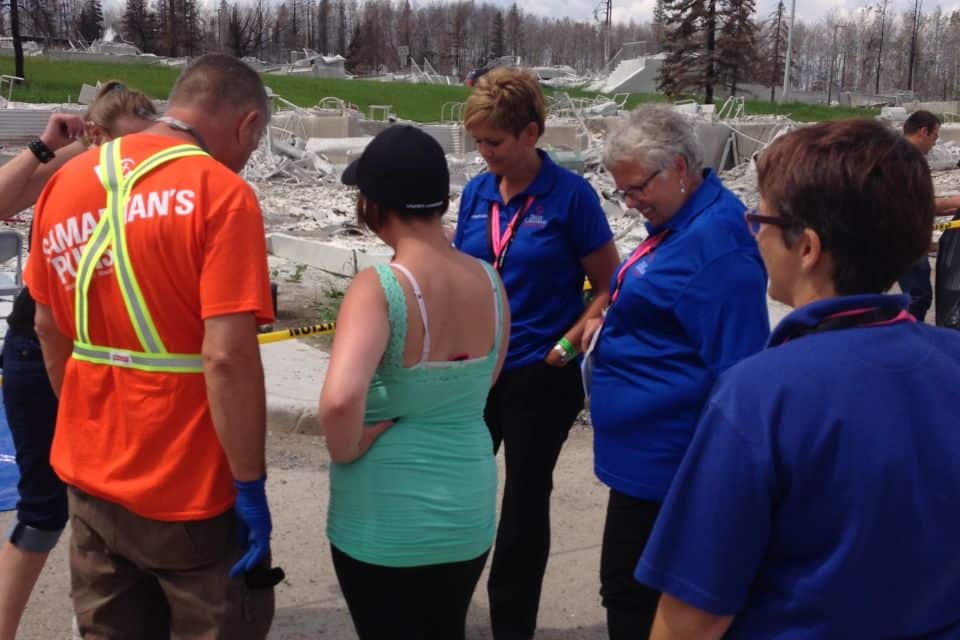Sharing Hope in Crisis (Truro)
April 26, 08:30 - 08:30
People’s Church - Truro, NS
For prayer, email us at [email protected]
Pour demander la prière, envoyez-nous un courriel à [email protected]
Para oración en español, envíanos un correo electrónico a [email protected]
Pour vous inscrire à la formation en francais, Partager L’espoir en temps de crise, envoyez-nous un e-mail à [email protected]
We all know a friend, neighbor, or coworker who is struggling with a life crisis. The Sharing Hope in Crisis seminar (SHIC) will help you know what to say and what not to say to people who are grieving and enable you to compassionately and appropriately share the love and hope of Jesus Christ.
This one-day seminar is suitable for everyone in the local church and is also ideal for counselors, church leaders and those who encounter suffering people on a regular basis.
All Critical Incident Stress Management (CISM) courses are instructed by a certified International Critical Incident Stress Foundation (ICISF) instructor.

Crisis Intervention is NOT psychotherapy; rather, it is a specialized acute emergency mental health intervention which requires specialized training. As physical first aid is to surgery, crisis intervention is to psychotherapy. Thus, crisis intervention is sometimes called “emotional first aid”. This program is designed to teach participants the fundamentals of, and a specific protocol for, individual crisis intervention. This course is designed for anyone who desires to increase their knowledge of individual (one-on-one) crisis intervention techniques in the fields of Business & Industry, Crisis Intervention, Disaster Response, Education, Emergency Services, Employee Assistance, Healthcare, Homeland Security, Mental Health, Military, Spiritual Care, and Traumatic Stress.
In the course of one’s career, it is inevitable that professionals will encounter traumatic death and loss issues both personally and professionally. Professionals often feel ill prepared to provide effective care throughout the grief process. This course will cover key grief and loss concepts relating to trauma and traumatic death. Participants will increase their knowledge of how trauma impacts the grief process and will gain skills for evaluating and supporting persons who have experienced traumatic death and loss.
This course is designed for anyone who works with people who experience grief and loss following a traumatic event.
Program Highlights
This course is designed to specifically teach crisis intervention and Emergency Mental Health skills such as demobilization, defusings, and CISD (Critical Incident Stress Debriefings). At the completion of this course, participants will be able to: define stress, CIS (Critical incident Stress), and STSD (Secondary Traumatic Stress Disorder); list the 10 basic interventions of CISM; and define and describe in detail the CISM group processes of demobilization, defusings, and debriefings.
ICISF’s “Assisting Individuals in Crisis” is a prerequisite to “Group Crisis Intervention.
Research validates that the help and support people receive in times of crisis matters. Providing effective emotional and spiritual care to individuals, families, and communities in difficult times is critical and can help promote resiliency and recovery. This two-day course endeavors to build helping skills and a better understanding of the unique role of the crisis responder and trains participants in the fundamental principles of spiritual and psychological first aid (SPFA). Care provided in SPFA may be defined as a practical, compassionate and supportive presence designed to mitigate acute distress, assess needs, provide essential supportive care, and link with other support systems as needed for ongoing spiritual, emotional, and mental health care.
Targeted participants will be trained clergy, chaplains, mental health professionals, crisis responders, and individuals who desire to enhance their skills in providing SPFA to survivors of loss, disaster, emergency, trauma, and crisis settings.
